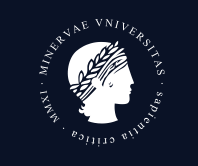Copyright, Technology and Education
 And so to Cork, for the Irish Learning Technology Association‘s 14th annual education technology conference on the theme of “Opening up Education – Content, Learning and Collaboration”. I will be talking this afternoon on “Copyright, Technology and Education”. Given the topic of the conference, my focus is on whether copyright reform can open up education, facilitate greater access to content, and encourage collaboration in learning and teaching. The context of this talk is the Copyright Review Committee Consultation Paper (you can download a pdf of the Paper here (via DJEI) or here (from this site); and summaries of each of the chapters are linked from this page), which made many recommendations relating to education, including adding “education” to the “teaching and research” exceptions, making thorough provision for reproductions for persons with a disability, and extending copyright deposit to digital works. Here are my slides (pdf); there is a live-stream here; and I’ll put a link here to the video in due course.…
And so to Cork, for the Irish Learning Technology Association‘s 14th annual education technology conference on the theme of “Opening up Education – Content, Learning and Collaboration”. I will be talking this afternoon on “Copyright, Technology and Education”. Given the topic of the conference, my focus is on whether copyright reform can open up education, facilitate greater access to content, and encourage collaboration in learning and teaching. The context of this talk is the Copyright Review Committee Consultation Paper (you can download a pdf of the Paper here (via DJEI) or here (from this site); and summaries of each of the chapters are linked from this page), which made many recommendations relating to education, including adding “education” to the “teaching and research” exceptions, making thorough provision for reproductions for persons with a disability, and extending copyright deposit to digital works. Here are my slides (pdf); there is a live-stream here; and I’ll put a link here to the video in due course.…




